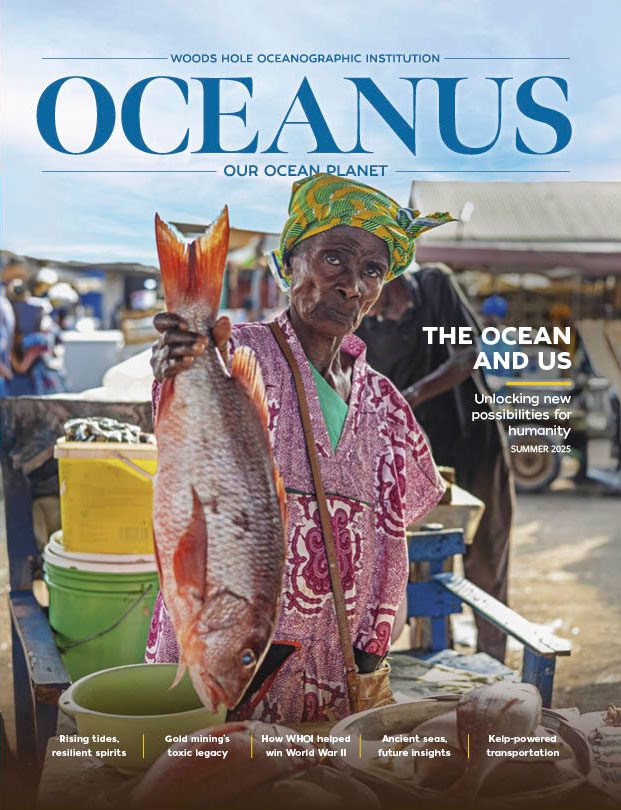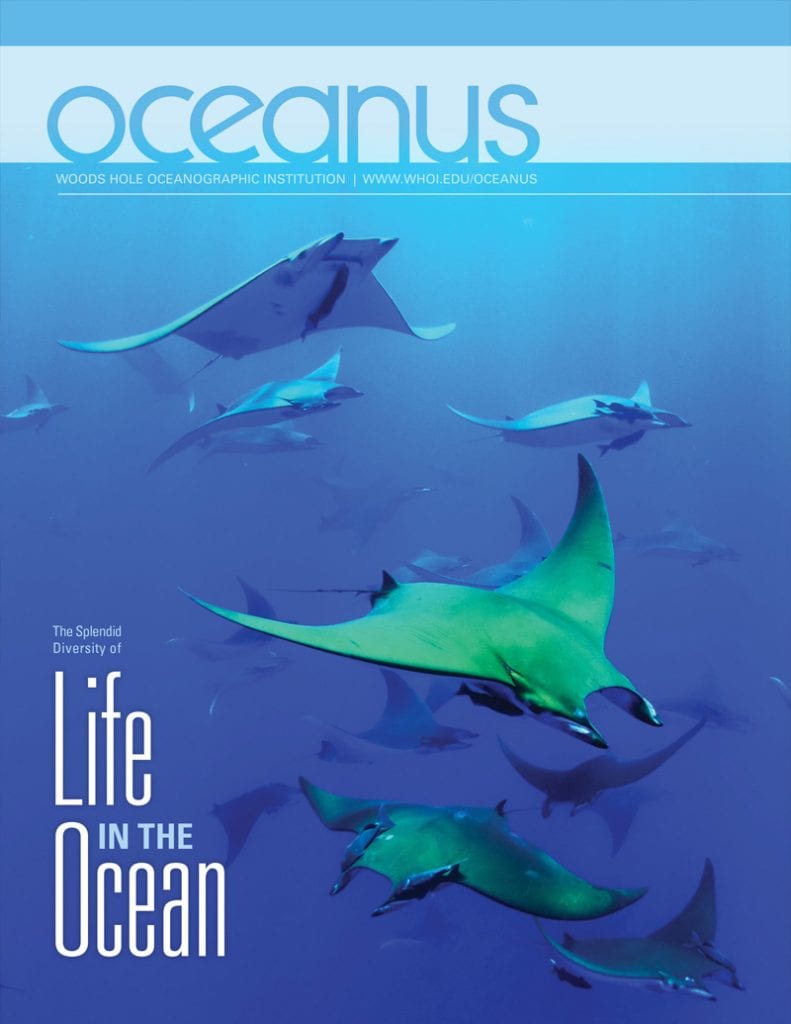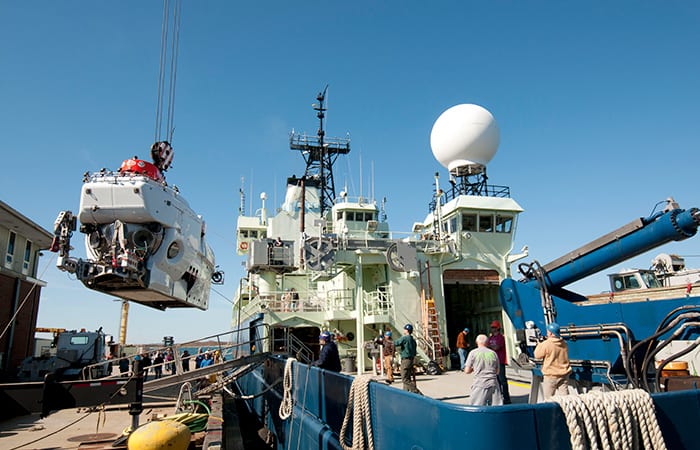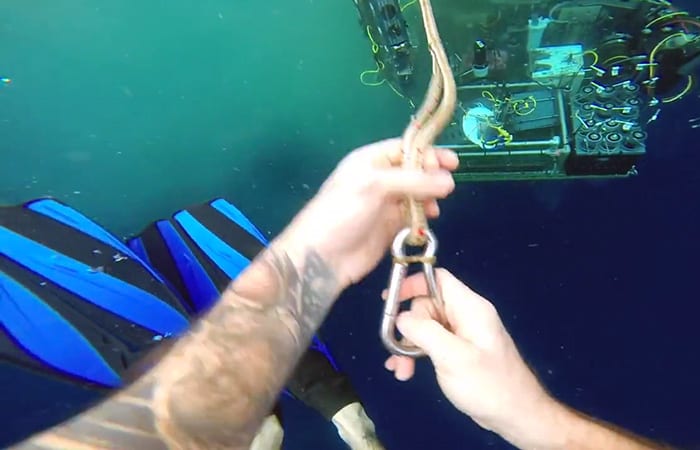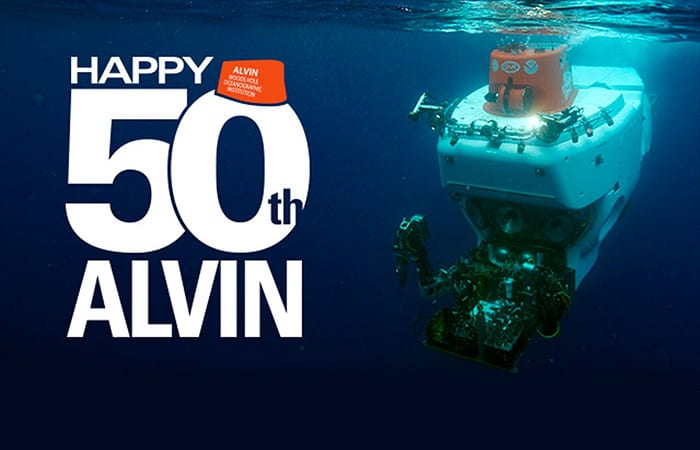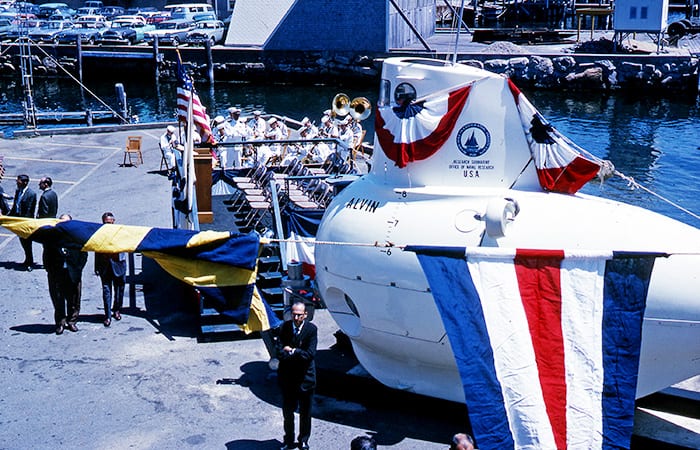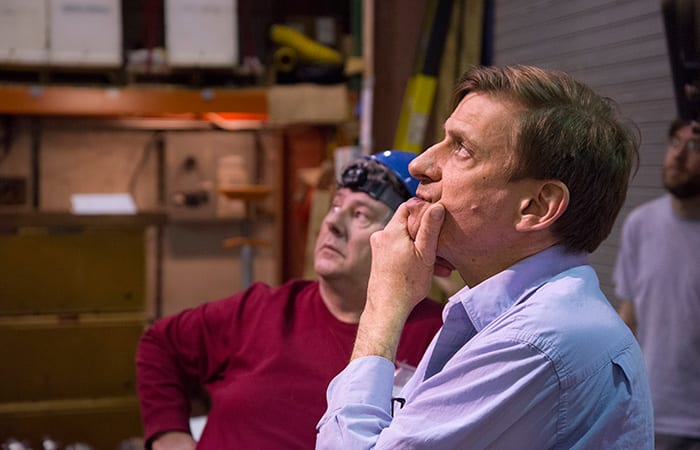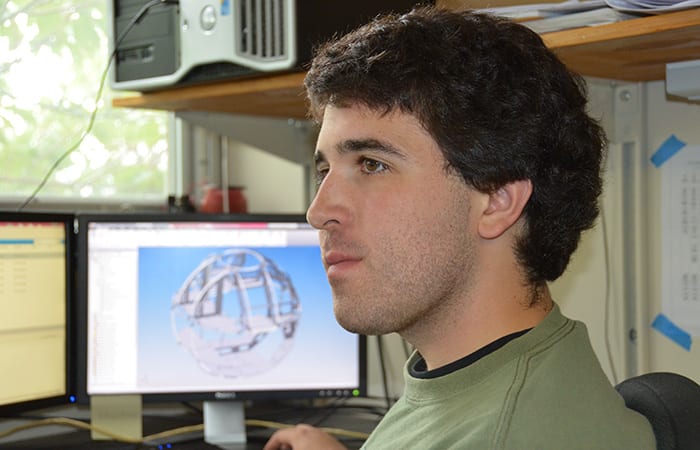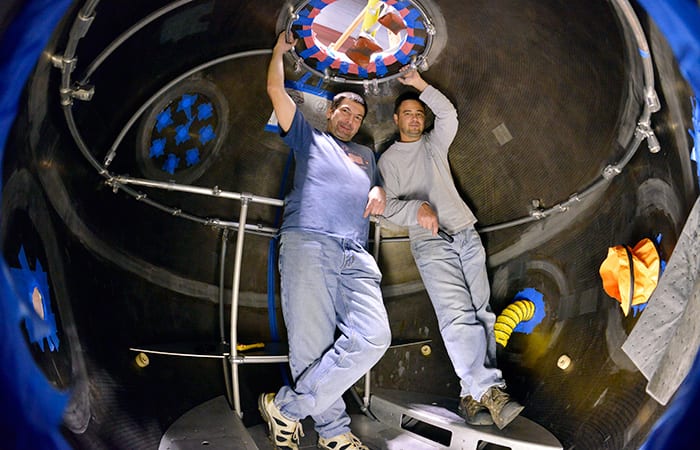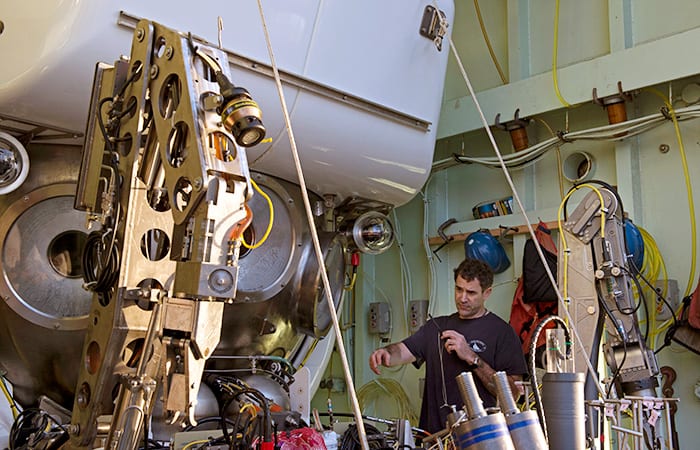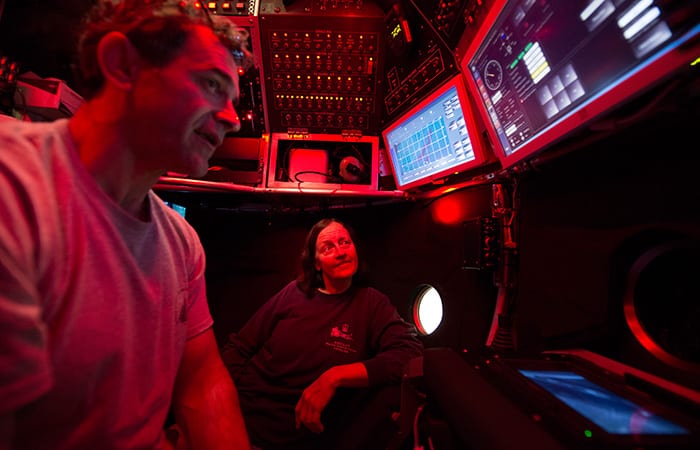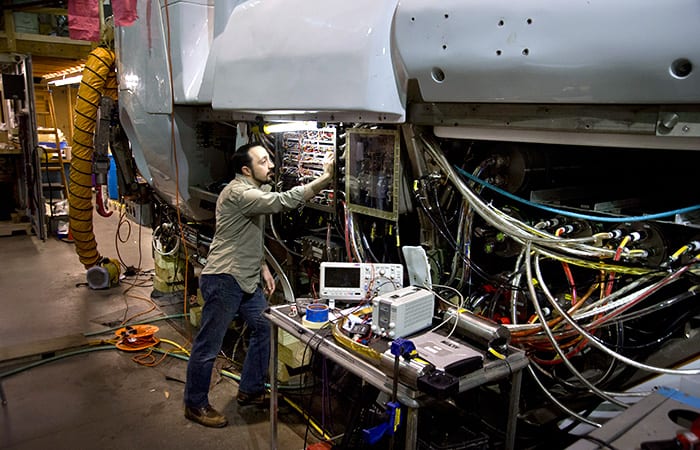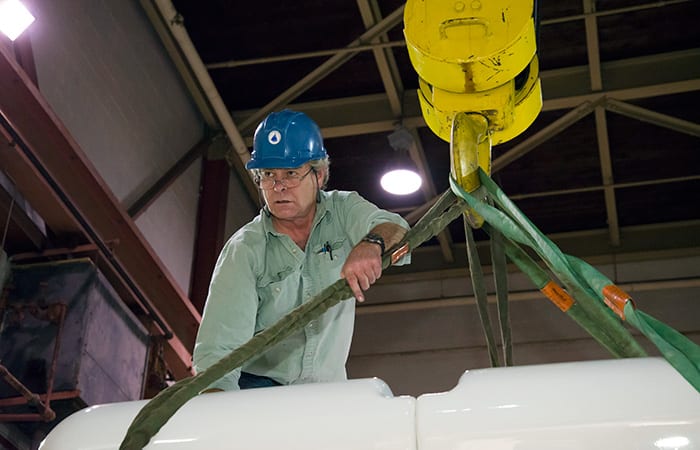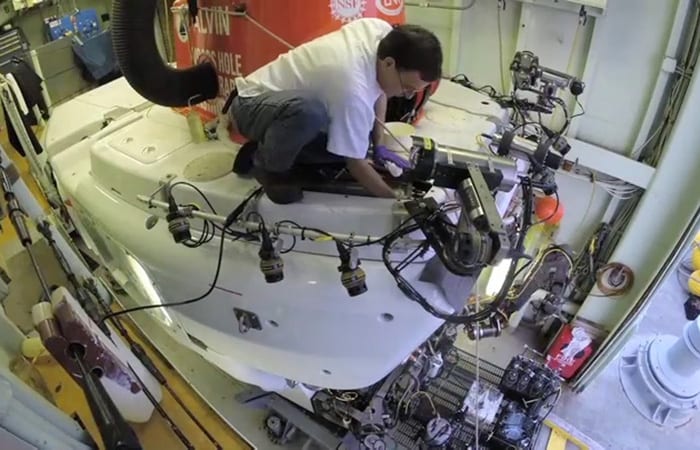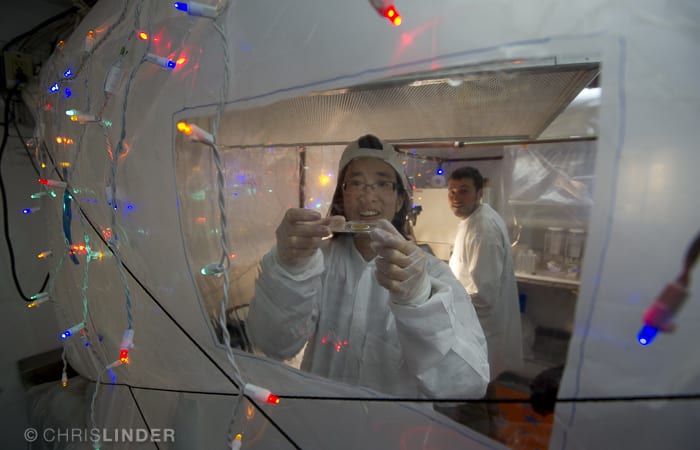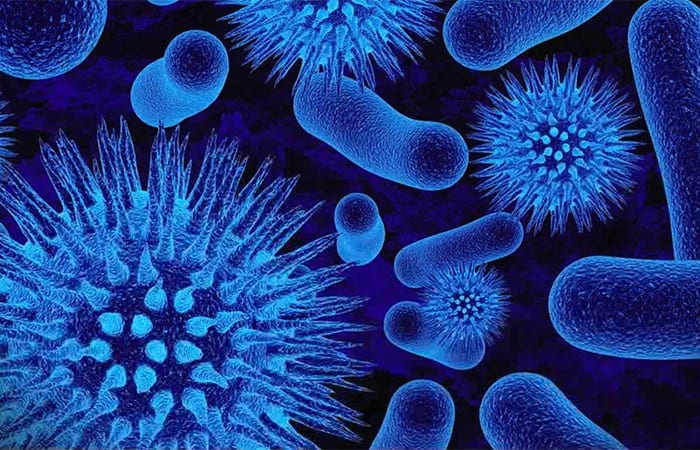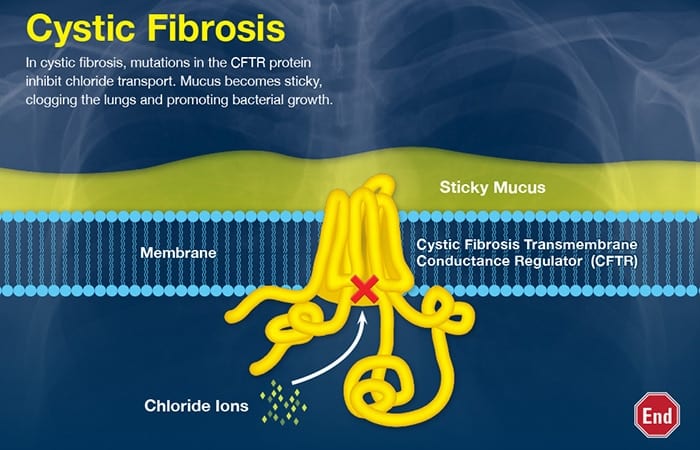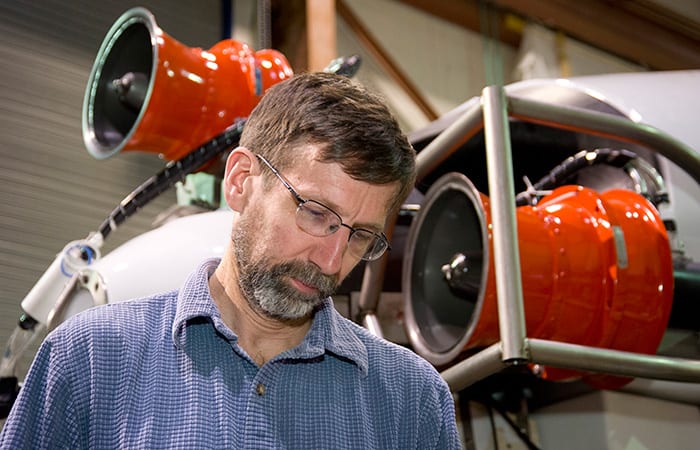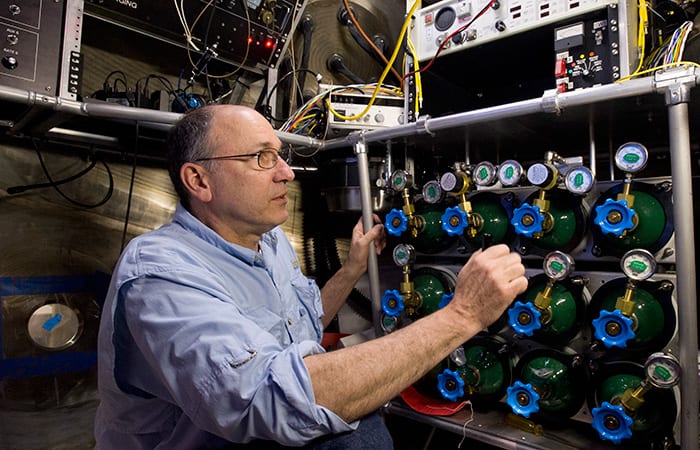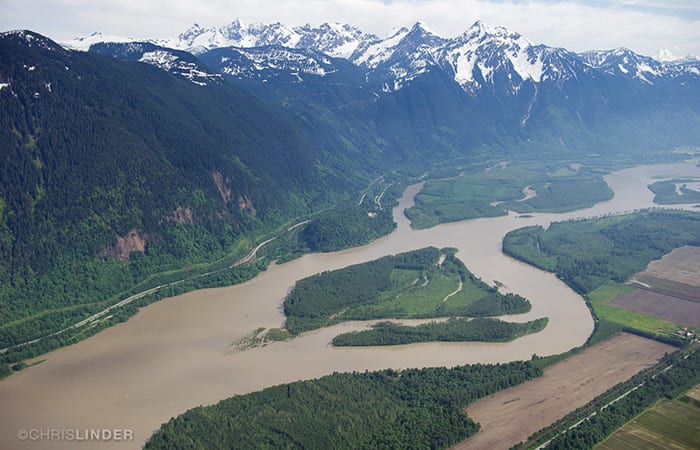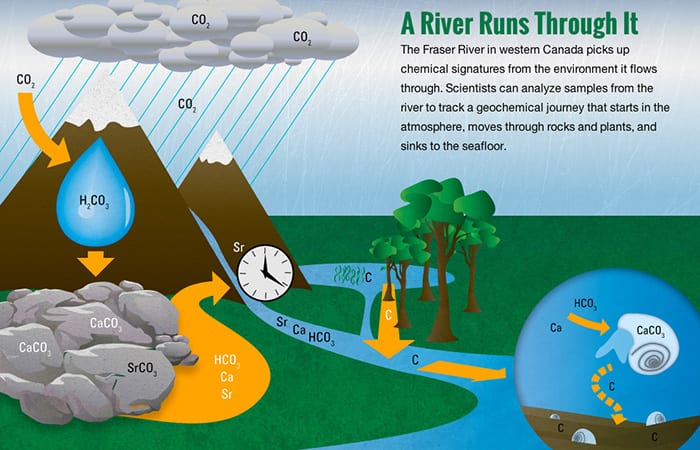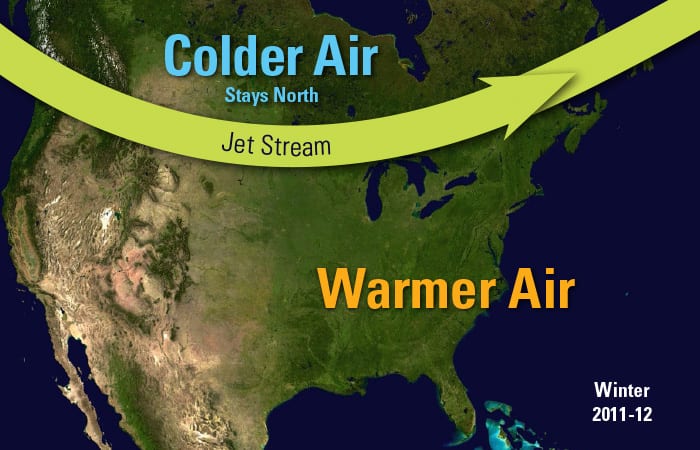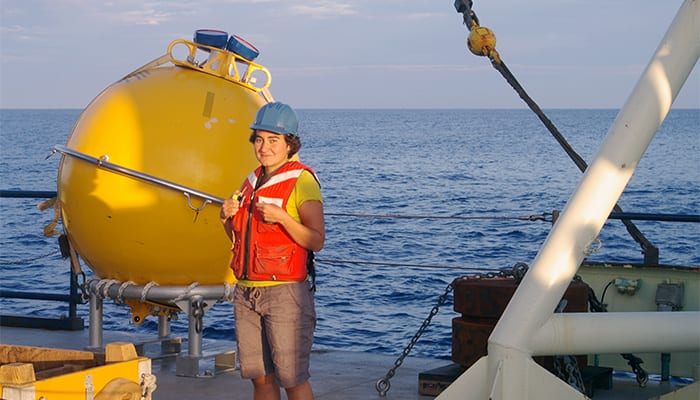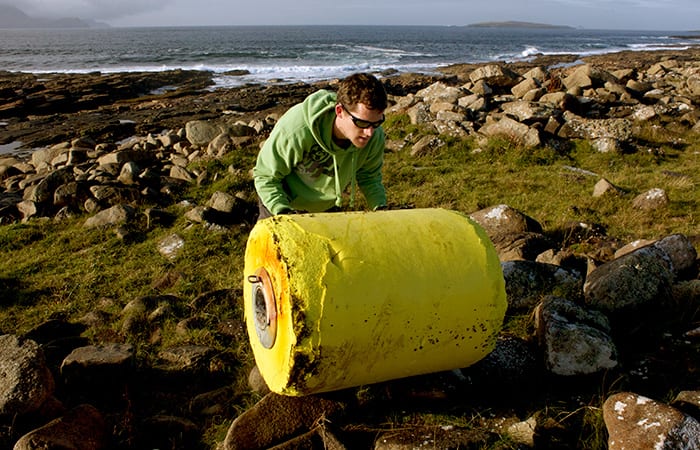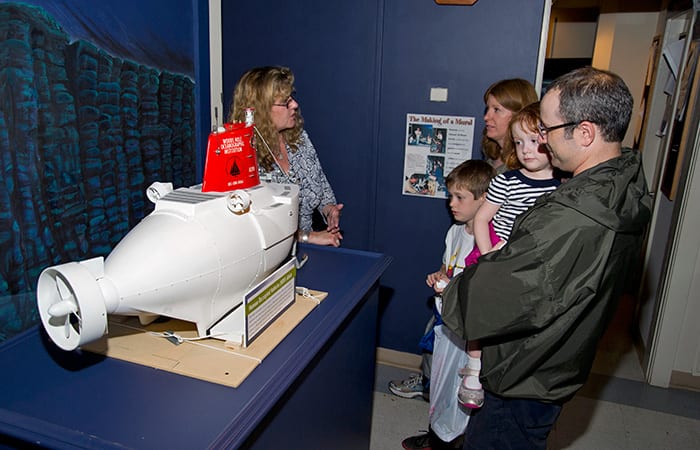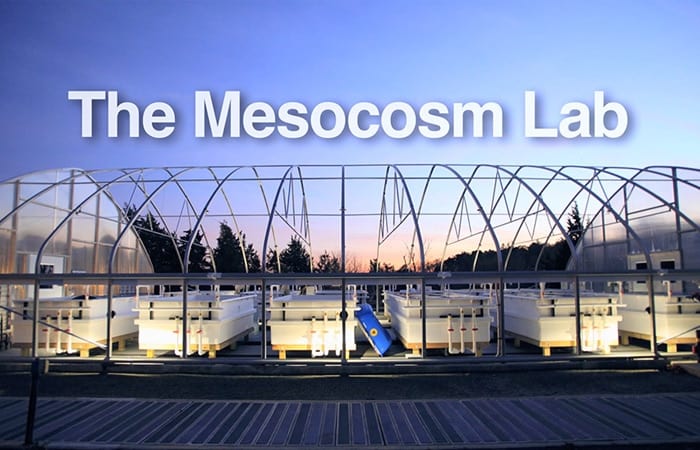Oceanus Online Archive
At 50, Alvin Gets an Extreme Makeover
The deep-sea research submersible Alvin returned to service in March 2014 after undergoing an historic overhaul that significantly enhanced its capabilities.
Read MoreBringing Alvin Back on Board
Crew members of the research vessel Atlantis play crucial roles in recovering the submersible after its day on the bottom of the ocean.
Read MoreHappy 50th Birthday, Alvin
Five years before we landed a man on the moon, a stubby submersible was built to take people to the bottom of the ocean. Alvin was commissioned on June 5, 1964.
Read MoreTrailblazer in the Ocean
On June 5, 1964, a stubby submersible with a not-so-bold name was commissioned on the dock of Woods Hole Oceanographic Institution, marking the beginning of a new era of deep-sea exploration
Read MoreRebuilding Alvin: Don Peters
More than 100 people at WHOI played roles in redesigning and reconstructing the new Alvin. Don Peters, senior engineer, headed the team that reconfigured the sub to accommodate a larger sphere and added weight.
Read MoreRebuilding Alvin: Logan Driscoll
The new Alvin has a new, slightly larger personnel sphere. Still, getting all the necessary equipment to fit inside the sphere took a Herculean effort.
Read MoreRebuilding Alvin: Durante & Skowronski
The new Alvin has a new, slightly larger personnel sphere. Still, getting all the necessary equipment to fit inside the sphere took a Herculean effort.
Read MoreRebuilding Alvin: Bruce Strickrott
Now that the newly upgraded Alvin has resumed operations, a pilot and scientist describe how some of the new features of the submersible are changing the way they are using the vehicle.
Read MoreRebuilding Alvin: Humphris & Strickrott
Now that the newly upgraded Alvin has resumed operations, a pilot and scientist describe how some of the new features of the submersible are changing the way they are using the vehicle.
Read MoreRebuilding Alvin: Anthony Tarantino
Anthony Tarantino, assistant project manager for the upgrade, explains the electrical systems in the new Alvin.
Read MoreRebuilding Alvin: Rod Catanach
Engineer Rod Catanach describes the fabrication, testing, and installation of the syntactic foam that provides buoyancy for Alvin.
Read MoreReady, Set, Dive
Before scientists go to work in the morning at the bottom of the ocean in the submersible Alvin, a team of engineers, pilots, and ship’s crew performs a carefully orchestrated choreography.
Read MoreUncovering the Ocean’s Biological Pump
Dan Ohnemus clearly remembers the highlight of his fourth-grade class in Bourne, Mass. He and his classmates made a satellite call to scientists at Woods Hole Oceanographic Institution (WHOI) who…
Read MoreDrug Discovery in the Ocean
WHOI scientists are investigating a wide range of unexplored microbes that produce chemicals with potential therapeutic value.
Read MoreRebuilding Alvin: Jonathan Howland
The 25th installment in our series on the people at Woods Hole Oceanographic Institution who helped design and build the new and improved version of the submersible Alvin.
Read MoreRebuilding Alvin: Phil Forte
A new installment in our series on the team of people at Woods Hole Oceanographic Institution who helped design and build the new and improved version of the submersible Alvin.
Read MoreOf The River and Time
The Fraser River in western Canada is flowing with tiny time capsules. Inside them is a fascinating history of Earth’s landscape and climate. For the past four years, I have…
Read MoreA River Runs Through It
The geochemical journey of carbon from the atmosphere to the river.
Read MoreJet Stream Gets Fish in Hot Water
WHOI scientists traced a heat wave in the North Atlantic, and the disruption of fisheries that it caused, to an unusual pattern in air circulation months earlier.
Read MoreDetours on the Oceanic Highway
WHOI graduate student Isabela Le Bras is exploring newly discovered complexities of the Deep Western Boundary Current, a major artery in the global ocean circulation system that transports cold water south from the North Atlantic.
Read MoreA Buoy’s Long Strange Trip
Since 2004, WHOI scientists have deployed ice-tether profilers (ITPs) in polar sea ice to monitor changing conditions in the Arctic. ITP 47 found its way to the coast of Ireland.
Read MoreLi’l Alvin
Tom Ryder is a professional underwater diver and a radio-controlled model builder. That combination, naturally, led to a fully operational miniature version of the deep-sea sub Alvin.
Read MoreThe Mesocosm Lab
A mesocosm is an ecosystem in miniature, providing a useful middle ground between an indoor lab and the great outdoors.
Read More